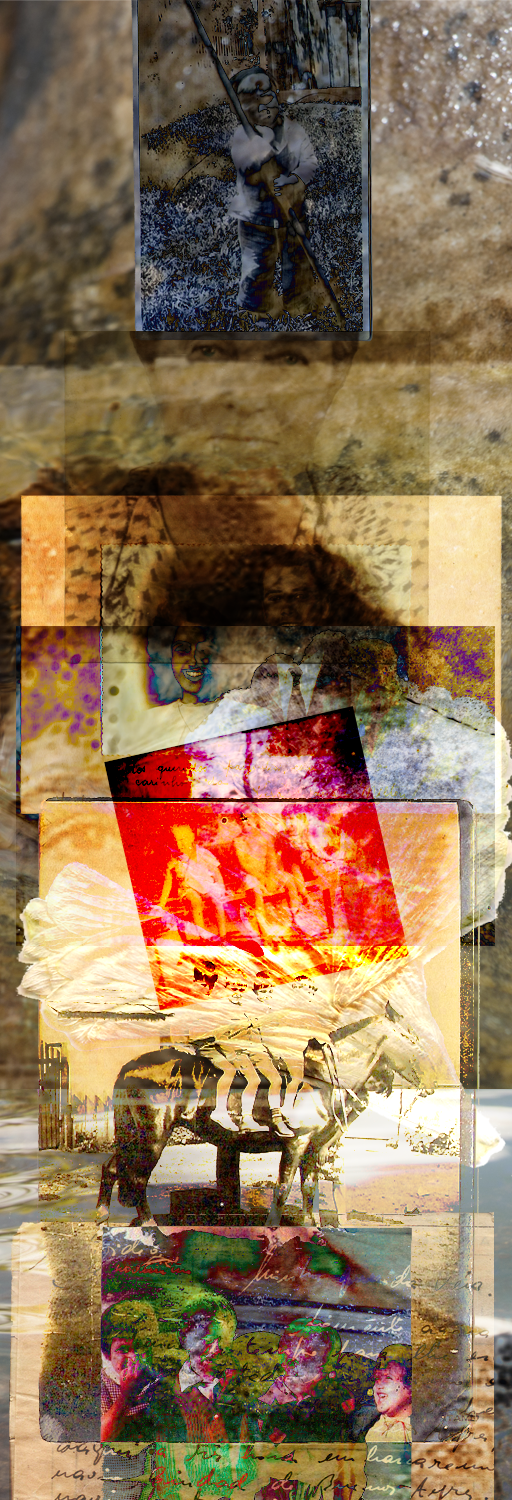
Do you see?
High on the scarp there are shells,
traces of salt in cracks,
and there are starfish.
A song is not forged
like incandescent rock
folding in on itself
without artifice.
A syllable does not hold in itself
sediments from extinct seas.
Which waters, for example, filter
through the word chulun?
See the enormous arch of stone
bent under all that basalt?
Sediments of innumerable seas
are the origin of these outcrops
of sandstone, yellow-brown.
The lightest word
cannot pulverize into archaic arenite.
Nor be flown by a hunter,
spear ever cocked
to harpoon raw clay
on fertile banks of forms.
Try marking with a chip
of calcite, creta, chalk – or white clay –
the way back from the maze:
it never stops changing what you’ve drawn.
Don’t you see the route of the rivers
running westward?
Or the shadowy sun, as it arboresces its reverses
in the hubbub of arroyos?
Does the word llaillai perchance
store the murmur of latticed rivers
running in gorges, over slabs?
See those reliefs where scarps
and stoney veins outcrop?
Grain by grain of sand,
of pollen, dust or fossil matter,
they rose over deltas laid down
by the hoarding of many interlaced rivers.
Do you hear the wind in clefts,
in sinkhole fault lines?
The wind speaks no language.
Parched sun. Arid rain.
Cürëv. Harsh soil.
Obscure, it makes its round between
frond and frond, cliff and boulder,
like an echo trying
to corrode silence.
And the seed-scattering gust;
it makes the berries dance;
and the beans, colors nearly mute,
before the rain?
Letters joined by chance
in their ranks mean nothing
to themselves; nor even see themselves
as riddles, in their blindness.
And these fruits, their pigments,
blue, red, violet,
and these flowers as they swing
from fullest murk to oldest gold,
gathered around their stalk?
Little prudent orbs, chod,
with neither the unstable beauty of petioles
nor fine stalks that under the storm
cast them to the dance.
Without lancing petals,
no prancing joy.
How to describe this flower’s velvet
– that skein, like a tiny fleece,
in the droughty tones this flower is?
Traces, syllables, sounds are captives,
orphans of unnamed things.
What language can shelter a bud
in its blooming instant,
and mean it?
Under the Sun the river rises in cloud,
and falls in rain,
and plunges into Earth
(its deepest dens)
and up again in fog,
perfect for planting.
Do you perceive the rushing scatter in grass?
The smell of a big cat in the air,
the breeze, even the gale?
The scattered gray on a tanager’s wing?
Voices, languages do not join a circle
for a rupestral dance inscribed
in shadow, in a cavern.
Stone polished, stone chipped – stone.
Before ceramics, clay
never imagined corrugation,
never funerary urn.
What place do you speak of?
Beneath this shallow sandy soil
hibernate bulbs,
under this putrid puddle
tangle rhizome nodes,
places where everything can be a beginning,
fruits of many futures.
Out of smoke from the fire,
from fig-bark paper
where blood from a tongue wounded
by a barbed cord
oozes in spirals
the vision of all that inspires
and all that cannot be seen.
I see stealthy tracks of a maned wolf
among clumps,
its recent spoor
on ancient magma.
Rustling air ruffled a jaguar’s pelt.
Rhymes are like primitive
snares. Sleet flakes,
symmetry of shoddy prisms,
amorphous, blurry edges
– nothing but daydream drawings,
rivers of delirium, empty rites.
Stone, water, wind,
all in its very spirit.
Has time changed place?
At the edge of the cliff I see
the matty nest of a swift
and in the wetland, tinamou’s unguarded shelter
– its back feathers olive-gray,
almost Andalusian.
Like memory.
From high on the Andean range
where the Pewenche,
the people of the araucarian live,
blue buzzards migrate
to pass the winter here,
in the vegetal relics of these fields,
among the Paraná Pines.
Don’t you see the sunset covering with colors
that bird with red and
black-striped plumage,
or the one with feathers deep green-
bronze, legs black-black,
and a white-striped back?
The feathers of some birds
change color according to the earth
by which they are pervaded.
I sense the murmur in fractures of a rock,
the sheet of blood-sunk organza
under closed eyelids.
High on the scarp there are shells,
traces of salt in cracks,
and there are starfish.
Rivers and gorges do not mark borders.
They are pathways.
In the sky, constellations move like eagles,
jaguars, nomad birds.
Nothing out of place.
Do you see?
Translated by Chris Daniels
Josely Vianna Baptista & José Kozer
poetry
Guilherme Zamoner: Itororó
digital art
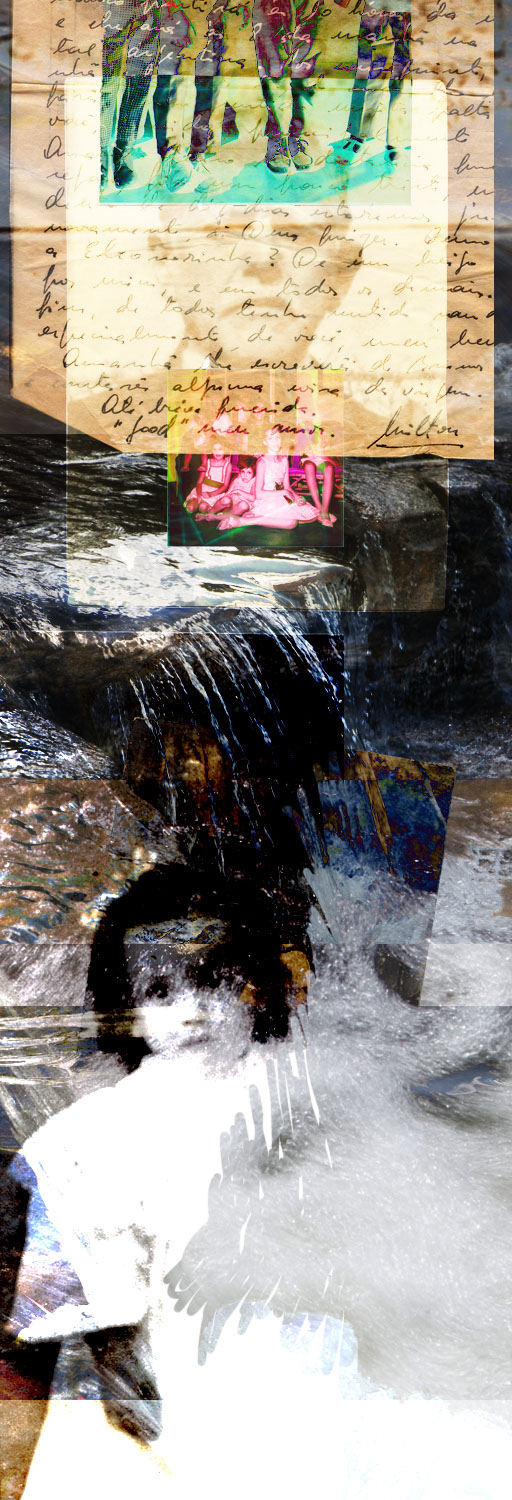
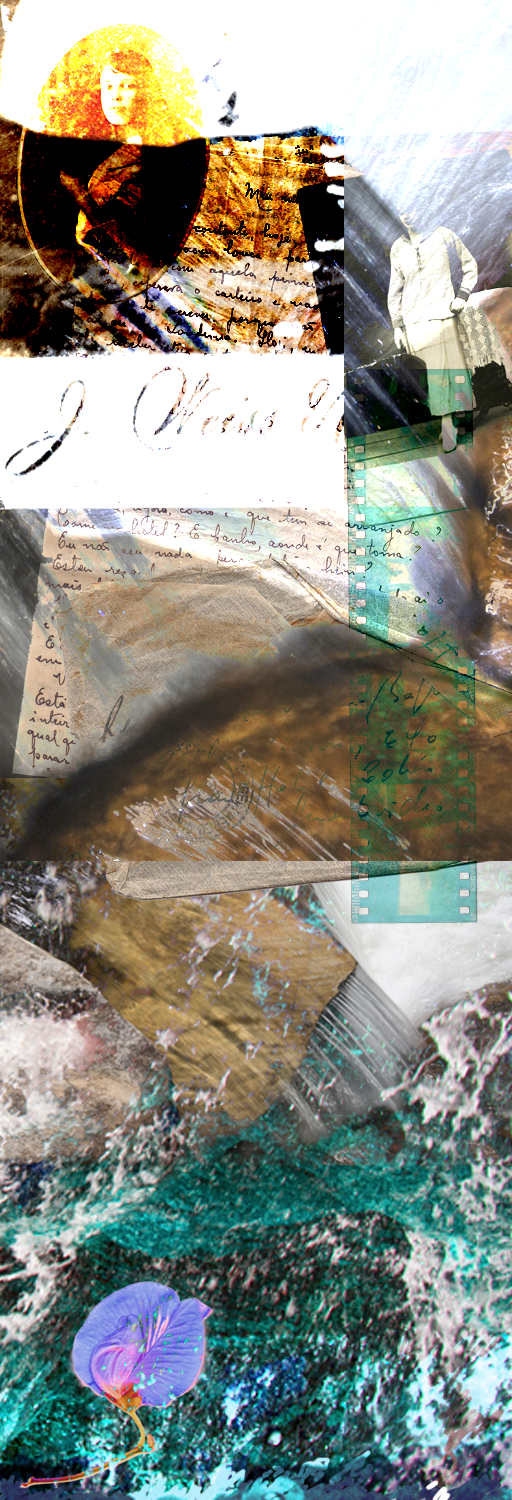
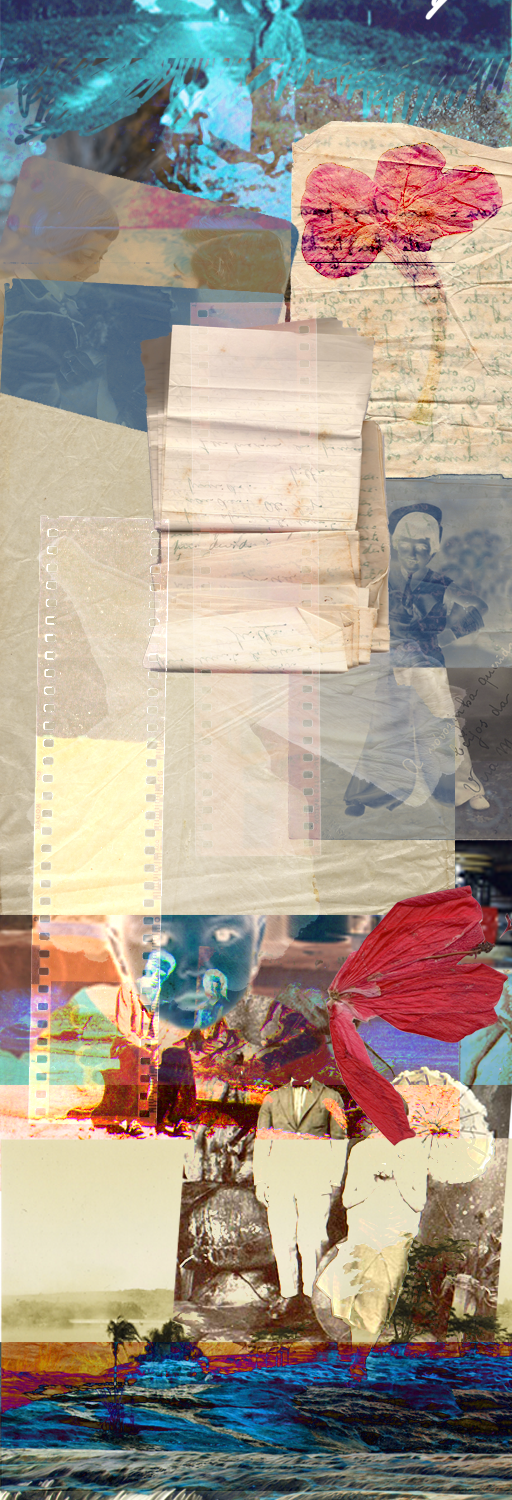
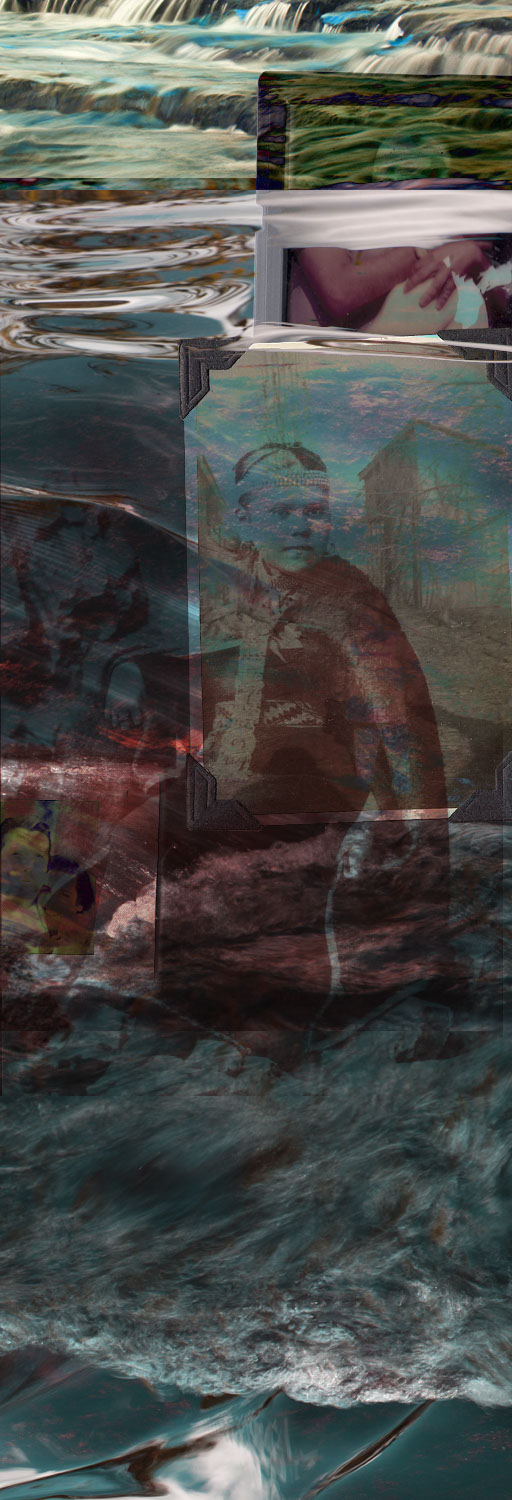
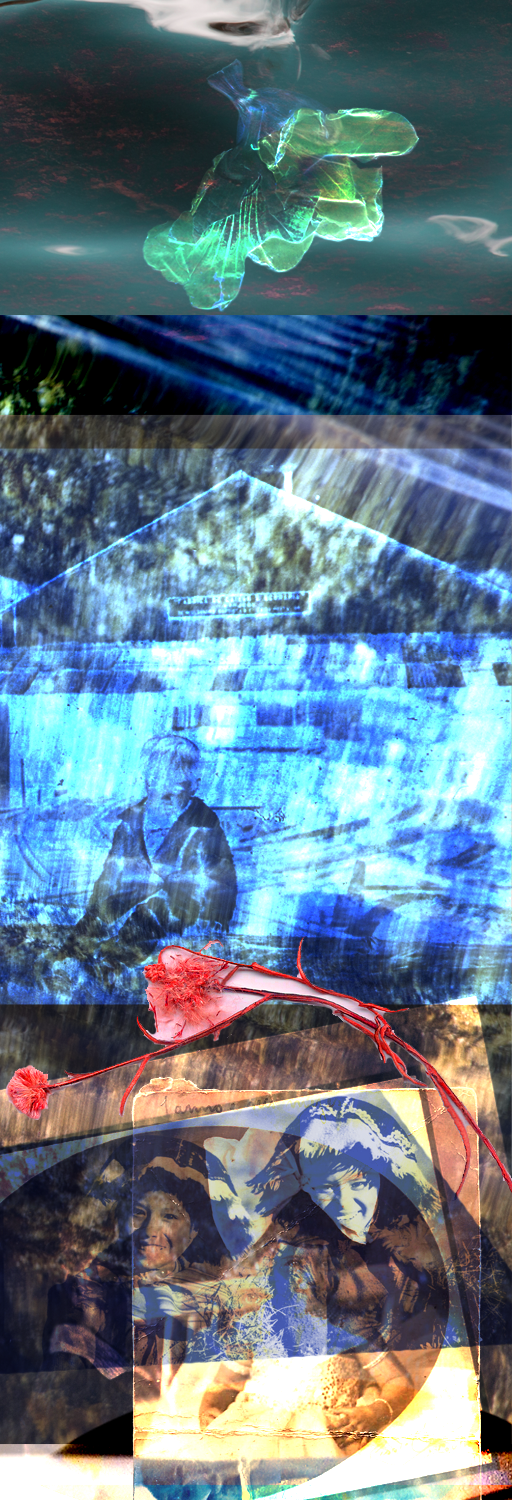
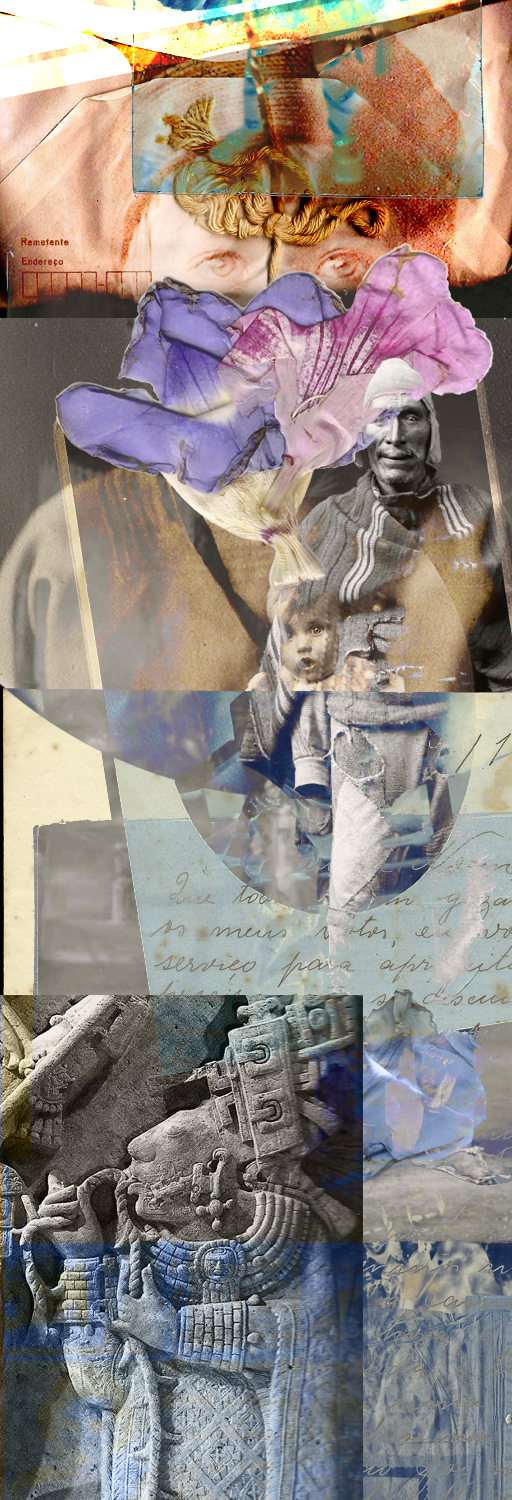
Josely Vianna Baptista
José Kozer
